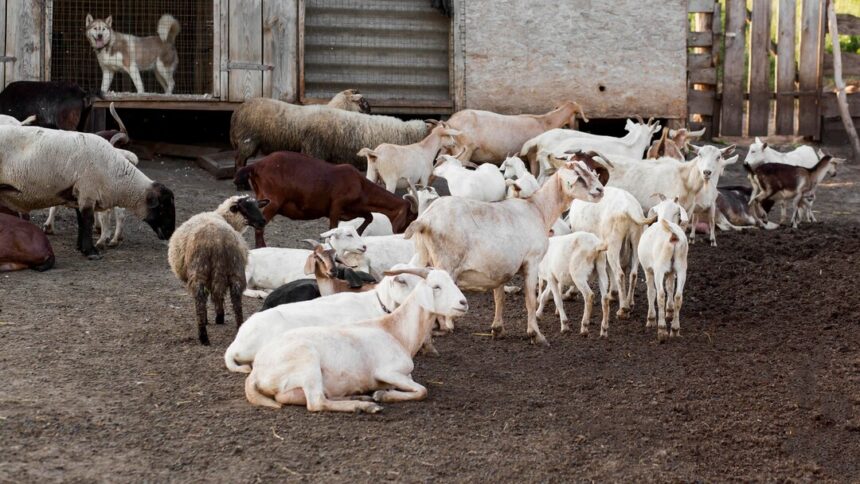Savanna goats, renowned for their hardiness, adaptability, and superior meat quality, have emerged as a popular choice for livestock producers in South Africa. With their robust nature and exceptional performance in diverse climatic conditions, Savanna goats offer lucrative opportunities for breeders and farmers across the country. Whether you’re a seasoned goat producer or considering entering the industry, here are ten essential insights to know about breeding and farming Savanna goats in South Africa:
1. Origin and History: Savanna goats, originally bred in South Africa during the late 1950s, were developed through selective crossbreeding of indigenous and imported goat breeds. The breed’s robustness and adaptability were honed through rigorous selection for traits suited to the country’s harsh environmental conditions.
2. Adaptive Traits: Savanna goats are well-suited to a wide range of environmental conditions, thriving in both arid and semi-arid regions. Their adaptability to harsh climates and low-input management systems makes them an ideal choice for extensive farming operations in South Africa.
3. Meat Production: Savanna goats are primarily raised for meat production, as they produce lean, tender, and flavorful meat prized by consumers. Their fast growth rates, efficient feed conversion, and high meat-to-bone ratio make them a profitable choice for commercial goat farming ventures.
4. Reproductive Performance: Savanna goats are known for their high fertility and prolificacy, with does typically producing multiple kids per kidding season. This reproductive efficiency contributes to increased herd growth and productivity, enhancing profitability for goat farmers.
5. Grazing Behavior: Savanna goats exhibit browsing behavior, preferring to graze on a variety of shrubs, trees, and grasses. Their browsing habits make them well-suited to extensive grazing systems and contribute to natural vegetation control and land management.
6. Health and Disease Resistance: Savanna goats possess robust immune systems and natural resistance to common goat diseases prevalent in South Africa. Their hardiness and disease resistance reduce the need for intensive medical interventions, contributing to lower production costs and healthier herds.
7. Housing and Management: Provide adequate housing and management facilities to ensure the health and well-being of Savanna goats. Construct sturdy shelters or pens with proper ventilation, drainage, and protection from adverse weather conditions to promote comfort and minimize stress.
8. Nutrition Requirements: Meet the nutritional needs of Savanna goats by providing a balanced diet rich in fiber, protein, vitamins, and minerals. Supplement grazing with high-quality forage and concentrates to support optimal growth, reproduction, and overall health.
9. Breeding Strategies: Develop strategic breeding programs aimed at maximizing the genetic potential of Savanna goats. Select breeding stock based on desirable traits such as growth rate, meat quality, and reproductive performance, and implement controlled mating systems to optimize breeding outcomes.
10. Market Opportunities: Explore various market opportunities for Savanna goat products in South Africa, including direct sales to consumers, supply to local markets, and export to international markets. Position Savanna goat meat as a premium product, highlighting its superior quality and unique attributes to attract discerning customers.
Breeding and farming Savanna goats in South Africa present lucrative opportunities for livestock producers seeking resilient, productive, and profitable livestock breeds. By leveraging the breed’s adaptive traits, meat quality, and reproductive performance, goat farmers can establish successful and sustainable farming enterprises. With proper management, nutrition, breeding, and market engagement, Savanna goats can play a vital role in meeting the growing demand for high-quality goat meat and contributing to the development of the goat farming industry in South Africa.
Join 'Farmers Mag' WhatsApp Channel
Get the latest Farming news and tips delivered straight to your WhatsApp
CLICK HERE TO JOIN






